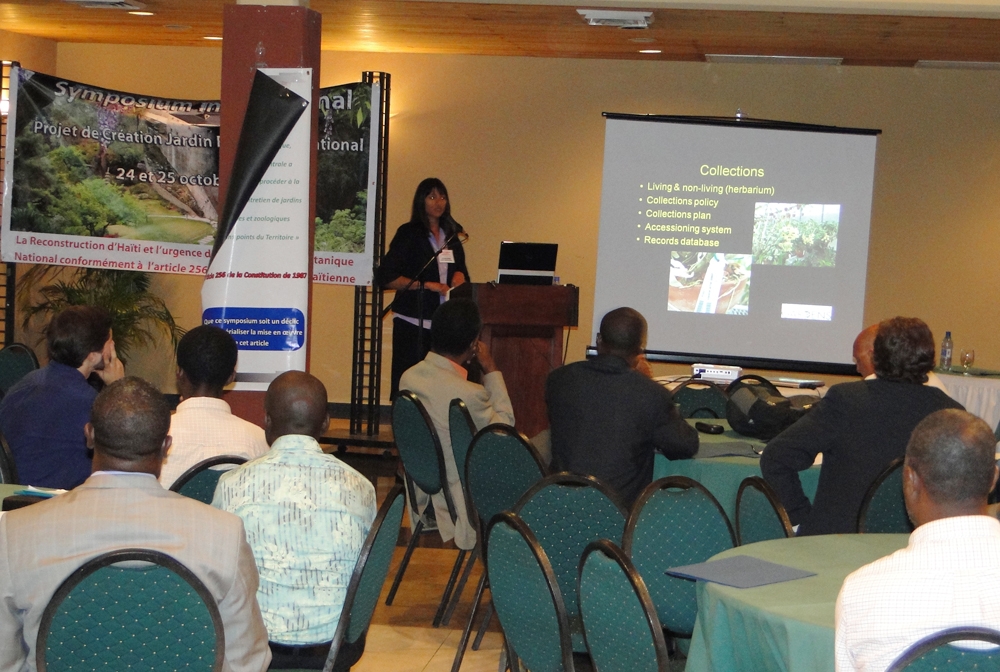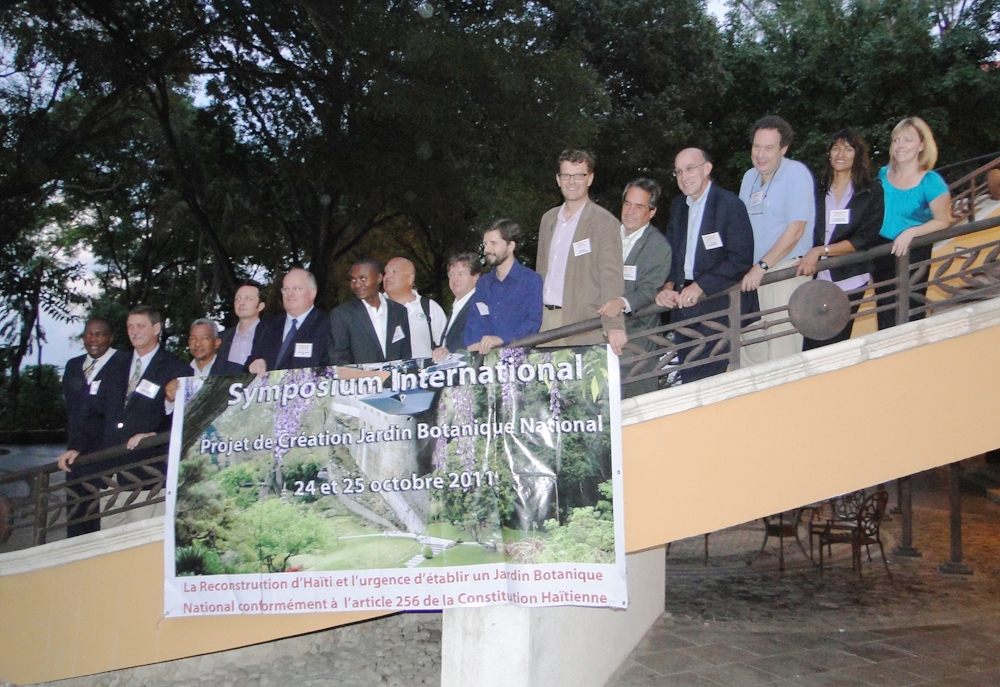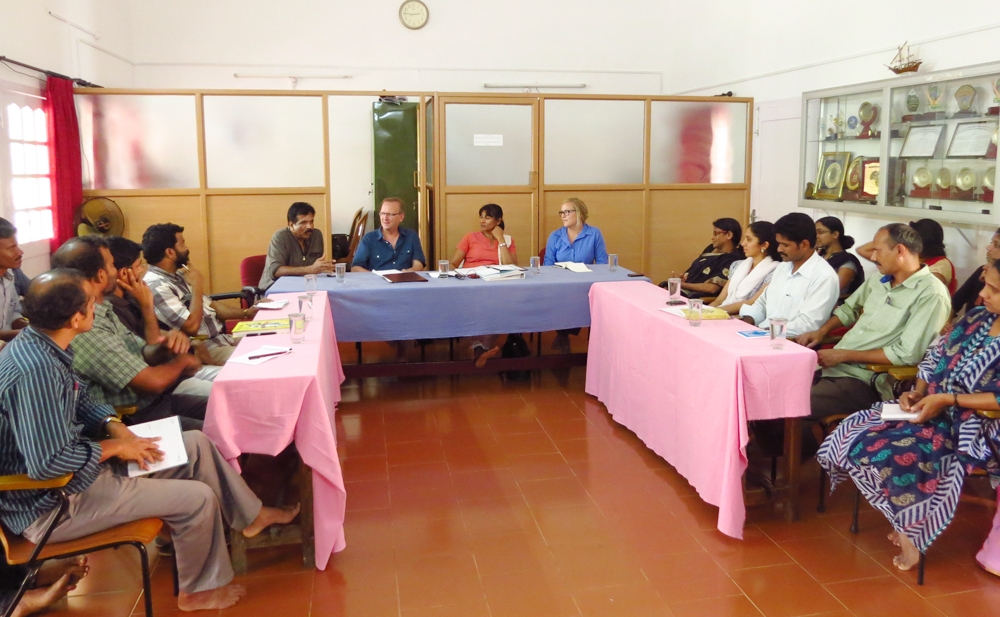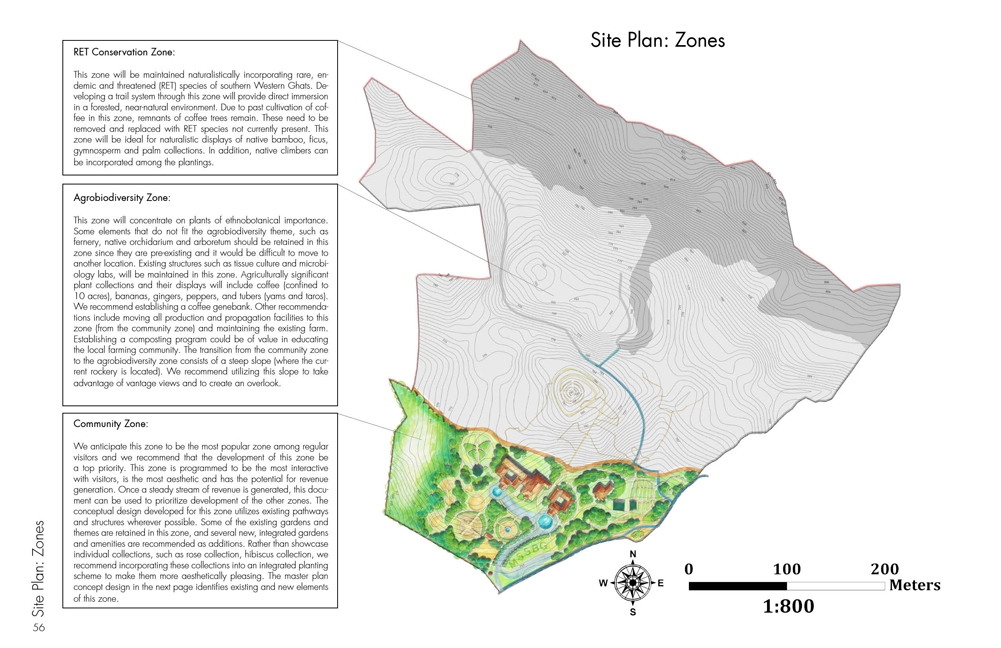Botanic Garden Development
Haiti: Workshop for establishing a National Botanic Garden in Haiti
In collaboration with six other U.S. botanic gardens, Denver Botanic Gardens was involved in the development of a National Botanic Garden in Haiti. An International Workshop on the Role of a National Botanic Garden in the Rebuilding of Haiti was held in Port-au-Prince, Haiti from Oct. 23-25, 2011. Participants representing botanic gardens and their networks in Canada, the Dominican Republic, France, Haiti, the U.K. and the U.S. presented ideas, priorities, recommendations and options for the establishment of a National Botanic Garden in Haiti during the workshop.
The workshop was attended by over 100 local professionals from various civic, development, ecological, and botanical fields. The Haitian Minister of Tourism pledged full support for the development and implementation of the National Botanic Garden, which in the coming years will become a reality with support from the international community. Since this workshop, due to various changes in the local government, the project has been slow in moving forward.
Gallery


India: Development of a Master Plan for the M.S. Swaminathan Botanical Garden
In 2014, the Gardens partnered with the M.S. Swaminathan Botanical Garden to develop a master plan for guiding the future growth and development and elevating the institution to a world-class public garden. The M.S. Swaminathan Botanical Garden is situated in the valley of a natural hillock in an agrarian village traversed with shade grown coffee groves and paddy/banana fields, near Kalpetta, the district headquarters of Wayanad district in the Western Ghats.
The monsoon forests of the Western Ghats, one of the world’s biodiversity hotspots, occur in western India both on the western (coastal) margin of the Ghats and on the drier eastern side, providing habitat for many endemic flora and fauna. The floral diversity of the Western Ghats also consists of many wild, un-utilized and under-utilized minor fruits that are rich in antioxidants, essential nutrients and bioactive molecules, offering tremendous potential for future development and commercialization that could result in food and livelihood security of local communities.
Rapid urbanization and deforestation are threatening several plant species with disturbance or change of about 35.3 percent forest cover between 1920 and 2013.
The master planning process consisted of multi-stakeholder consultations by Denver Botanic Gardens and MSSBG teams. Over two days, the following activities were undertaken:
- Tour of the botanical garden to do a site analysis
- Meeting with staff for program analysis, identification of mission and understand challenges and opportunities and their vision for the garden
- Community meeting with experts from other botanical gardens and government agencies revolving around three core areas of revenue generation, conservation programs and partnerships, and education programs and farmers’ training
- Community meeting with local teachers and farmers with discussion of the three above mentioned core areas as well as what they wanted to see in the Garden
Based on these discussions, the Gardens’ team developed a master plan that provided recommendations for site and program development.
In 2017, an advisory committee was formed to provide direction for raising funds for the implementation of the master plan. This led to the development of a strategic plan and the engagement of a consultant to develop a fund-raising plan.
The M.S. Swaminathan Botanical Garden is uniquely positioned to address the challenges predominant in that part of the world as well as celebrate the rich biological and cultural heritage of the region. By creating a holistic framework that is farmer-centric and science-driven, MSSBG is making strides in the conservation and sustainable use of the rich biodiversity of the Western Ghats.
Gallery


